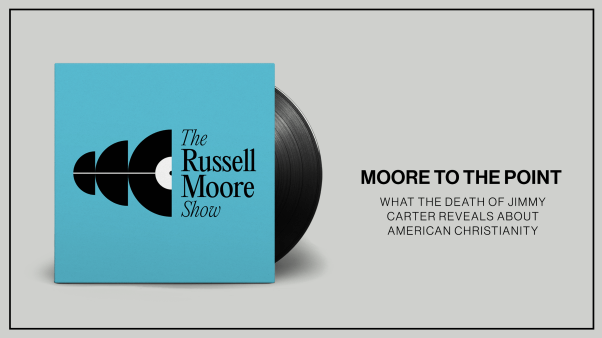Let me get my complaints out of the way up front. At first I didn’t like the way Eugene Peterson paraphrased John 1:14 in The Message: “The Word became flesh and blood, and moved into the neighborhood.” It was catchy, “moved into the neighborhood,” but I thought it bordered on cutesy. I thought Peterson should have stayed with something like the more traditional “dwelling.” (It could be worse: I know someone who would have liked “zip code.”) Also, I still think there are way too many hyphens in the book. Since I’m looking at the prologue to John’s gospel right now, I can tell you that there are 14 hyphens in the first 18 verses, from “Life-light” to “one-of-a-kind god-expression.”
OK, those are my complaints. That’s as tough as I can get with Eugene Peterson’s wonderful paraphrase. The problem with me reviewing anything he has written is that I want to be like him when I grow up, and I am almost 60 and running out of time. I’m in danger of becoming a Peterson-toady. See what I mean? Now I’m using hyphens with abandon.
One could do worse than emulate Eugene Peterson. His 35 years as a pastor have honed and polished an ability to boil a thing down to its essence, to really get it right, with a few vivid words. This art is apparent in his pithy and memorable renderings of Scripture, but also in the brief book introductions he wrote for The Message, which alone are worth the price of the book. Each one is a theological and devotional gem.
Thus Matthew is introduced through the lens of the genealogy that opens the gospel. Effortlessly, without pedantry and faithful to the author’s intent, Peterson shows that the long list of names should be pondered as a key to the meaning of both the gospel and the Gospel:
The story of Jesus doesn’t begin with Jesus. God had been at work for a long time. Salvation, which is the main business of Jesus, is an old business. Jesus is the coming together in final form of themes and energies and movements that had been set in motion before the foundation of the world.
This insight isn’t new to Peterson, but he delivers it with a clarity and grace that make it come alive:
Matthew tells the story in such a way that not only is everything previous to us completed in Jesus; we are completed in Jesus. Every day we wake up in the middle of something that is already going on, that has been going on for a long time: genealogy and geology, history and culture, the cosmos—God. We are neither accidental nor incidental to the story. We get orientation, briefing, background, reassurance.
Peterson does this kind of thing again and again, from Song of Songs to Romans to Revelation. One
doesn’t come by such art quickly. What so feeds and pleases in these introductions is the fruit of the long years of a pastor’s study, reflection, and labor to show his congregation that “Every part of Scripture is God-breathed and useful one way or other—showing us truth, exposing our rebellion, correcting our mistakes, training us to live God’s way. Through the Word, we are put together and shaped up for the tasks God has for us” (2 Tim. 3:16-17). In The Message, Peterson hasn’t essentially done anything other than what he did for all those years in the pastorate. He has merely expanded the size of his congregation to include the rest of us. Thank you, pastor.
But as valuable as the introductions are, The Message must ultimately be judged by its treatment of the biblical text. A friend of mine likes The Message, but with some reservations. “It just doesn’t sound like the Bible,” he says. I agree. And maybe that is just the point: that the Bible as it was written didn’t sound like the Bible either.
Peterson points out in his introduction to the Psalms that their writers—men like David, Asaph, and Moses—weren’t always very nice people. I would add that they probably weren’t as nice as many of the godly and learned scholars who have since translated them for us. Character and temperament can greatly influence one’s choice of words in translation, affecting the tone and feeling of a passage, if not the abstract meaning. Peterson knows this and excels in conveying the not-so-nice anger and urgency behind the prayers of the Psalter.
Psalm 17 is a good example. The first verse is translated faithfully and elegantly in the New International Version:
Hear, O Lord, my righteous plea;
listen to my cry.
Give ear to my prayer –
it does not arise from deceitful lips.
But Peterson makes an educated guess at how furious and righteously indignant David was when his enemies were slandering and attacking him, and abandons elegance for chutzpah:
Listen while I build my case, God,
the most honest prayer you’ll ever hear.
Show the world I’m innocent—
in your heart you know I am.
And David won’t take no for an answer. He is getting a raw deal and expects God to be God, for heaven’s sake, and do the right thing. Pronto. Now. Quickly. He prays, “because I’m sure of an answer. So—answer! bend your ear! listen sharp!” In The Message, David doesn’t ask God to save by his right hand those who take refuge in him from the anger of their foes, as accurate a translation as that is in the NIV. No, he implores God to “take in your frightened children who are running from the neighborhood bullies straight to you.” As for his enemies, David prays, “Up, God: beard them! break them! … Barehanded, God, break these mortals … I’d like to see their bellies swollen with famine food” (verses 7, 13-14). This isn’t prayer whispered before an altar in a quiet sanctuary, it’s prayer shouted through a bullhorn in the streets—or in the neighborhood.
Peterson understands better than many that much of the Bible, especially the New Testament, was written for streets and neighborhoods. It is perfectly accurate to translate the words of the risen Lord in Revelation 1:8 as “I am the Alpha and the Omega” (NIV). Plus it sounds sonorous and very religious. To paraphrase it as “The Master declares, ‘I’m A to Z,'” as Peterson does, is to take Alpha and Omega to the streets, even though the verses lose some of their sonority and inner-sanctum ring.
And the streets is where they belong, for that’s where God wants to go. He wants to take all that was “outer” and make it “inner.” The end of history as we know it will be just that, when we can finally say, “Now the dwelling of God is with men” (Rev. 21:3, NIV); or as Peterson paraphrases, “I heard a voice thunder from the throne: ‘Look! Look! God has moved into the neighborhood. … It’s happened. I’m A to Z. I’m the Beginning, I’m the Conclusion'” (Rev. 21:3, 6).
Still, my friend’s friendly criticism has some truth to it. The Message does sound the way the Bible would have sounded if Eugene Peterson had written it. Translations are done by committee, and for good reason. The task of accurately translating a book that has come to us from God over centuries through diverse writers in strange languages in exotic cultures is too much for one man. But then The Message isn’t a translation, it’s a paraphrase; and sometimes we need a good paraphrase so we can get on with the translation.
I think of something Elisabeth Elliot said in one of her books about travelers who would occasionally visit her mission station in the rain forest of Ecuador. They would come equipped with all the latest in backpacking equipment and topographical maps, and they would be lost—though unwilling to admit it. All they asked for were a few directions so they could get on their way on their own. What they really needed, said Elliot, were not directions but a reliable guide who could walk them through the unfamiliar territory. Then they could get on—on their own.
Eugene Peterson is as good and reliable a guide as I can think of. I love The Message not only because it has so often clarified the biblical text for me, but also because Peterson is a wise and witty companion, a faithful servant of the Lord we both seek and meet in Scripture. If I can’t be like Peterson when I grow up, I’d like to have him move in next door—in my neighborhood.
Ben Patterson is campus pastor at Westmont College. Among his books are Waiting: Finding Hope When God Seems Silent and Deepening Your Conversation with God.
Copyright © 2002 by the author or Christianity Today/Books & Culture magazine. Click here for reprint information on Books & Culture.








